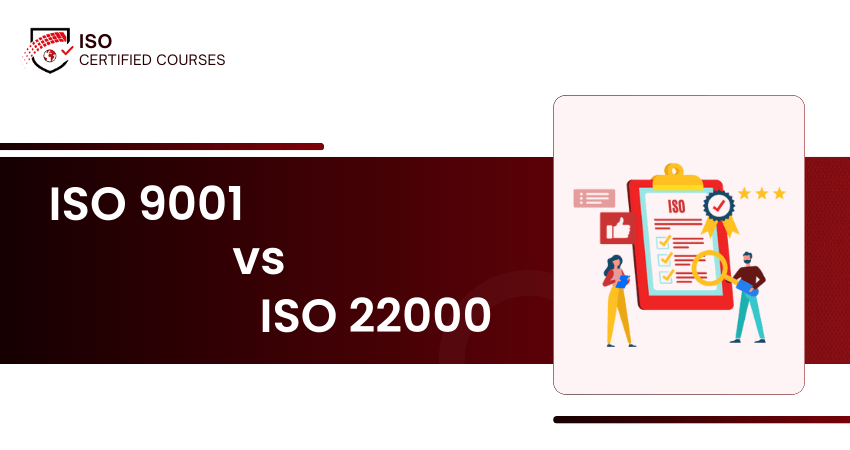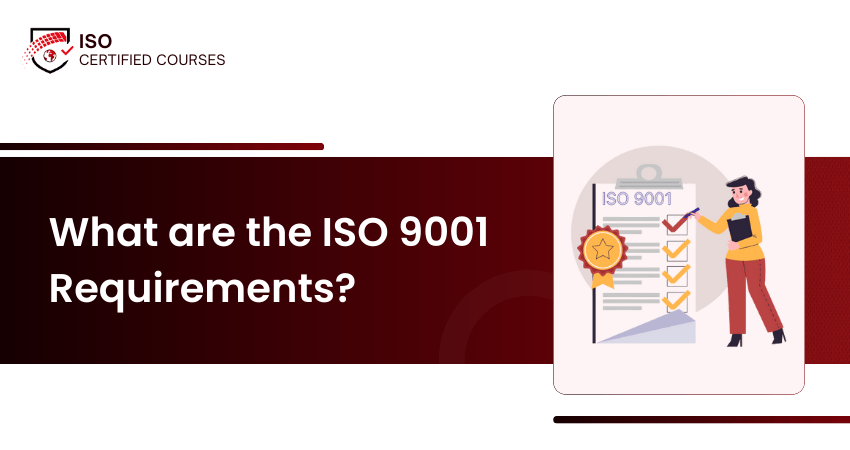ISO 27005 Lead Implementer Training Overview
The ISO 27005 Lead Implementer Course provides in-depth guidance on designing and managing information security risk processes. Learners develop the skills to implement ISO 27005 effectively, align with ISO 27001 requirements, enhance risk governance, and support ongoing improvements within Information Security Management Systems (ISMS).
Key Topics Covered
Introduction to ISO 27005: Scope, principles, and terminology.
Risk Assessment Planning: Defining context, criteria, and approach.
Risk Identification and Evaluation: Methods and prioritisation.
Risk Treatment Planning: Selecting and applying risk controls.
Ongoing Monitoring and Review: Maintaining and improving risk processes.
Course Benefits
Strategic Competence: Master ISO 27005 implementation for information risk management.
Professional Growth: Ideal for Risk Managers, Security Consultants, and Control Leads.
Implementation Tools: Includes real-world templates and step-by-step guidance.
Regulatory Alignment: Supports ISO 27001 implementation and ongoing risk governance adherence.
The ISO 27005 Lead Implementer Course is designed to equip professionals with the knowledge and skills needed to implement risk management processes based on the ISO 27005 standard. This course can be beneficial for a wide range of professionals, including:
Business Continuity Managers
Risk Managers
Information Security Managers
Security Consultants
Regulatory Officers
Data Protection Officers
Auditors

ISO 27005 Lead Implementer Training Outline
Module 1: Introduction to ISO 27005 Standard
Introduction
Concepts, Key Definitions, and Background
Quality Management System (QMS)
Information Security Risk Management
Role and Importance
Understanding the Situation in an Organisation
Reviewing and Monitoring
Octave Method
EBIOS Method
MEHARI
Harmonised TRA Method
Module 2: Interaction with Other ISO
How ISO 27005 Interacts with ISO 27001?
Quantifying the Business Impact
Impact Severity
Module 3: Planning Individual Internal Audits
Internal Audit Approach
Risk Assurance Mapping
Audit Plan
Research the Audit Area
Conduct Process Walk-Throughs
Map Risks to the Organisation, Process, or Function
Obtain Data Prior to Fieldwork
Module 4: Conducting Internal Audit and Handling the Interview Process
Identify Risks
Plan and Audit Activities
Validate the Facts and Complete the Work
Develop a Deliverable or Report that will Drive Action
Follow Up
Module 5: Understanding Risk Management in an Internal Audit
Introduction
Risk Management Process
Module 6: Preparation of an ISO 27005 Audit
Define Audit Objectives and Scope
Select Audit Criteria
Establish Audit Teams
Develop Audit Plan
Module 7: Conducting an ISO 27005 Audit
Risk Management Process
Context Establishment
Risk Assessment
Risk Treatment
Risk Acceptance
Risk Communication and Consultation
Risk Monitoring and Review
Module 8: Closing an ISO 27005 Audit
Prepare Audit Report
Distribute Audit Report
Conduct Audit Follow-up
Module 9: Managing an ISO 27005 Audit Program
Know What and When to Audit
Create an Audit Schedule
Pre-Planning the Scheduled Audit
Conducting the Audit
Record the Findings
Report Findings
Module 10: Key Concepts, Terminology, and Definitions Lead Implementer
Internal Context
Risk
Module 11: Introduction to Risk Management
Monitoring and Reviewing Potential Risks
Risk Management Methodologies
Information Security Risk Management Framework and Process Model
Information Assets Classification, Identification, and Threats
Threat Vulnerabilities
Controls
Controlling Vulnerabilities
Vulnerability Categories and Sources
Consequences of Vulnerabilities
Incident Scenarios
Types of Vulnerabilities
Methods for Risk Assessment
Scales and Simple Calculations
Acceptance Strategies
Improvement of Risk Assessment and Risk Management
Risk Assessment and Risk Management
Implementation of Risk Management Programmes
Risk Communication and Consultation
Communicating Risk
Principles of Risk Communication
Accurate Communication
Risk Communication Procedures
Module 12: Risk Identification and Analysis
Risk Analysis and Scoring
Risk Identification
Risk Estimation
Methodologies
Components
Risk Assessment Techniques
Assumptions Analysis
Checklist Analysis
SWOT Analysis
Prompt Lists
Interviewing and Brainstorming
Module 13: Role and Responsibilities of a Risk Manager
Risk Acceptance and Making Changes
Information Security
Types of Risks and Associated Threats
Security Controls and Measures
Scope and Boundaries of Process
Constraints that Affect an Organisation
Impact of Risks
Information Security Risk Management
Train and Make Employees Aware of Risks
Module 14: Identifying, Evaluating, and Treating Risk Specified in ISO 27005
Risk Treatment
Mitigating Control Measures
Risk Analysis Tools and Evaluation

What You’ll Learn in this Course
By the end of the course, learners will be able to:
Design and lead ISO 27005 implementation projects
Establish risk assessment and treatment frameworks
Integrate risk management into an ISO 27001 ISMS
Monitor and improve risk management performance
Align information risk strategies with organisational goals

What’s Included
ISO 27005 Lead Implementer Examination
World-Class Training Sessions from Experienced Instructors
ISO 27005 Lead Implementer Certificate
Digital Delegate Pack
ISO 27005 Lead Implementer Training Exam Details
To achieve the ISO 27005 Lead Implementer, candidates will need to sit for an examination. The exam format is as follows:
Question Type: Multiple Choice
Total Questions: 30
Total Marks: 30 Marks
Pass Mark: 50%, or 15/30 Marks
Duration: 40 Minutes
Open Book/ Closed Book: Closed Book

Individual Training
Boost your expertise with our Individual Training, tailored for professionals seeking ISO knowledge at their own pace. Learn core standards, industry best practices, and implementation skills from certified experts.
Corporate Training
Empower your teams with our Corporate Training solutions, designed to align ISO standards with your organisational goals. Ensure compliance, boost efficiency, and build a culture of continuous improvement across your workforce.
Boost Your Career with ISO Training
Average salary boost for professionals with our ISO Training in compliance and standards roles
85%Learners begin roles in quality assurance, compliance, or audit after completing our ISO Courses
90% Compliance Readiness
Organisations report enhanced operational efficiency and preparedness following our ISO Training for employees
-
Manufacturing and Production
-
Energy and Utilities
-
Construction and Infrastructure
-
Waste Management and Recycling
-
Information Technology and Information Security
-
Public Sector and Environmental Services
Our Immersive Learning Solution
Hands-On Learning Experience
Engage with real-world scenarios, interactive tasks, and simulations that bridge theory and practical application.
Expert-Led Delivery
Learn from seasoned professionals with deep industry experience and insight into ISO standards and beyond.
Flexible Learning Formats
Choose from Online Instructor-Led, Online Self-Paced, or Classroom sessions designed to suit your pace and preferences.
Customised Content
Training aligned with your sector, goals, and challenges, ensuring relevant, targeted learning every time.
Empowering Growth with Tailored Training Solutions
We help organisations equip their teams with the skills and knowledge needed to consistently meet industry standards. Our corporate training is designed around your specific operational goals, ensuring alignment with the ISO framework.
With a strong focus on real-world application and measurable outcomes, each session drives practical capability and lasting improvement. By fostering standard-driven performance across all levels, we empower your workforce to contribute confidently and consistently to organisational success.
- Delivered by industry-certified trainers with hands-on experience
- Custom content aligned to your sector, standards, and strategy
- Flexible formats, including on-site, virtual, or blended, to suit your teams
On-Demand Access
Custom and Scalable Solutions
24x7 Support












Feedback From Our Clients
The ISO 9001 Internal Auditor Training gave me practical insight into quality systems and how to apply audit techniques effectively. The sessions were clear and approachable, even without prior auditing experience. I now feel confident reviewing documentation, identifying nonconformities, and contributing to continuous improvement. The real-world examples and audit scenarios helped me understand the practical side of compliance and how it fits into our daily operations.
Completing the ISO 45001 Foundation Training provided me with a solid understanding of occupational health and safety standards. The training clarified legal requirements, hazard identification, and risk control measures. I’ve applied this knowledge to improve our incident response protocols and reinforce safety culture within the team. It’s also made me more effective at communicating compliance expectations and supporting ongoing H&S initiatives.
The ISO 22301 Foundation Training helped deepen my knowledge of business continuity planning and risk preparedness. The course content was practical and focused on real implementation challenges, which I could immediately relate to my role. I now play a more active part in reviewing continuity plans and coordinating recovery strategies. The training has improved how we manage operational risks and strengthened our overall resilience.
I registered my team in the ISO 9001 Lead Implementer Training, and the improvements were visible right away. The training gave us the tools to standardise workflows, enhance documentation, and build a consistent quality management system. The team has taken ownership of processes and is now more proactive in identifying areas for improvement. It’s significantly enhanced how we align with best practices and deliver results with greater reliability.
Our team participated in the ISO 45001 Lead Auditor Training to reinforce our internal safety and compliance framework. The training not only improved our auditing skills but also helped us critically assess our workplace health and safety practices. We’ve since implemented stronger controls and improved reporting structures. The shift in awareness and engagement has been very positive, especially in high-risk areas.
Frequently Asked Questions
What is the ISO 27005 Lead Implementer Course about?
This course teaches learners how to implement risk management frameworks based on ISO 27005, enabling organisations to manage information security risks effectively and align with ISO 27001 operational requirements.
Do I need experience before taking this course?
Yes, prior knowledge of ISO 27001 or basic risk management is recommended. This foundation supports a deeper understanding of ISO 27005 implementation practices and their integration within an Information Security Management System.
Who should attend this course?
This course is ideal for Risk Managers, Security Consultants, Control Leads, and professionals responsible for planning and leading risk treatment strategies within an ISO 27001-based environment.
Does the course include implementation of tools and templates?
Yes, learners receive step-by-step guidance, risk registers, assessment templates, and implementation frameworks that support real-world ISO 27005 application across different organisational settings.
What is the duration of the ISO 27005 Lead Implementer Course?
The course is delivered in 3 days and includes expert-led sessions, implementation workshops, documentation exercises, and case-based risk planning activities.








































